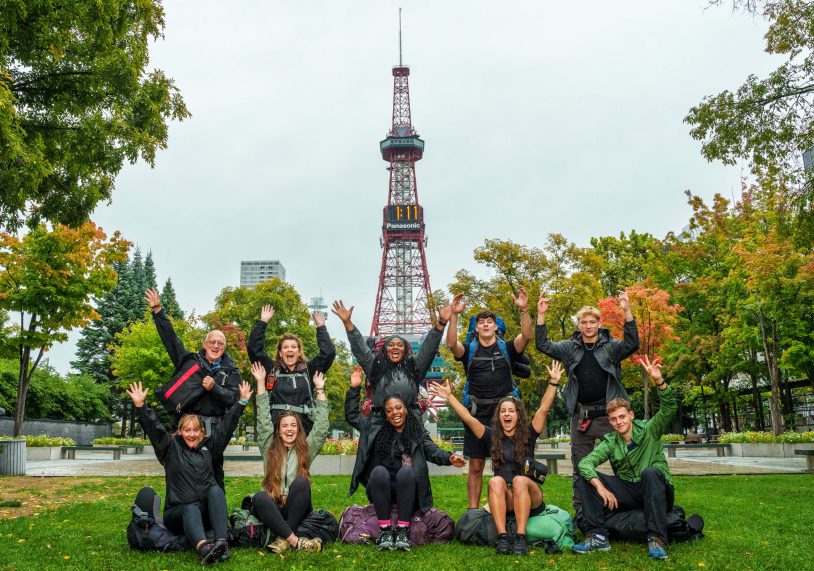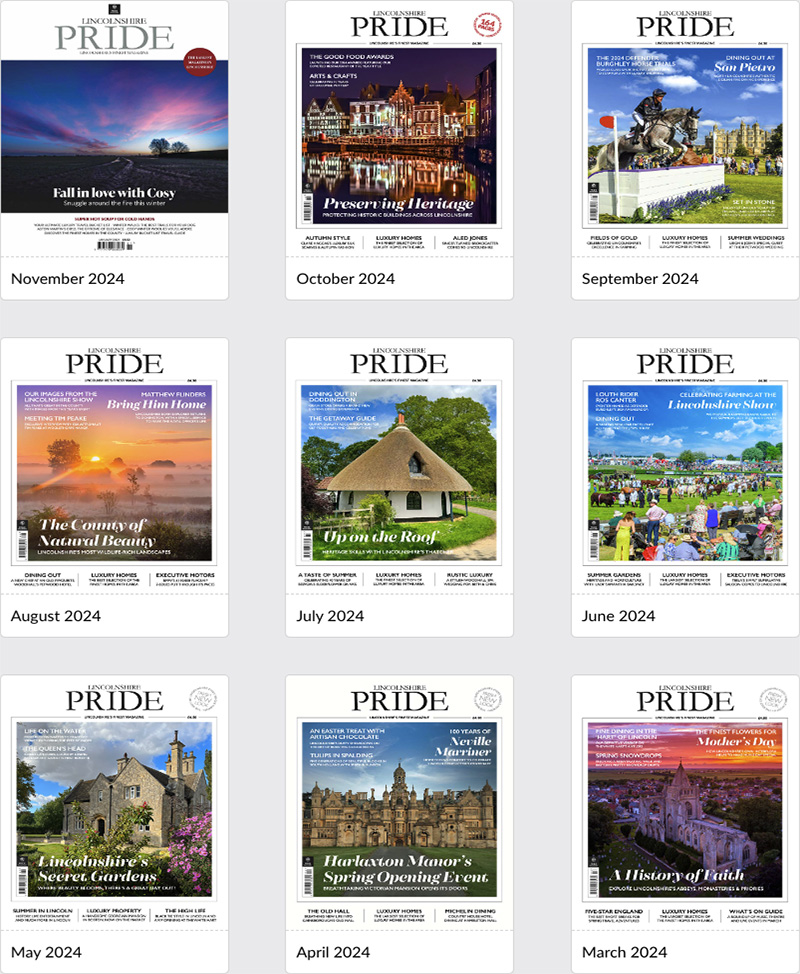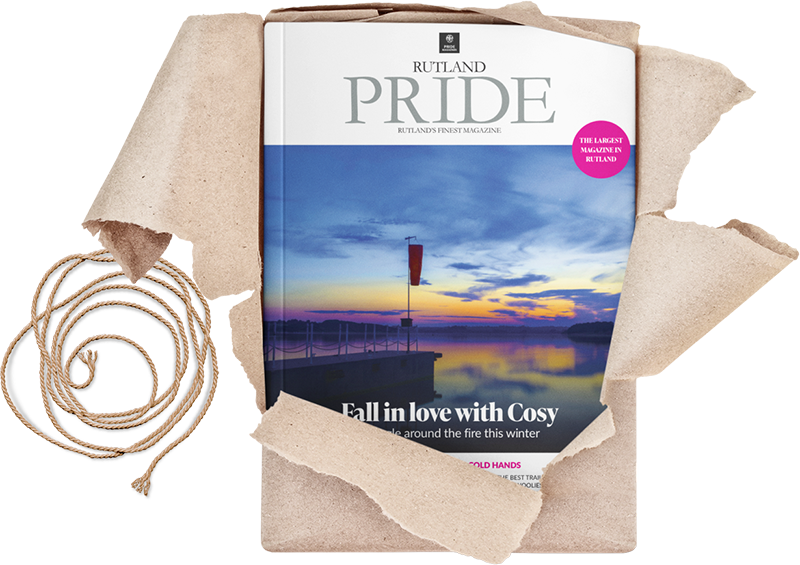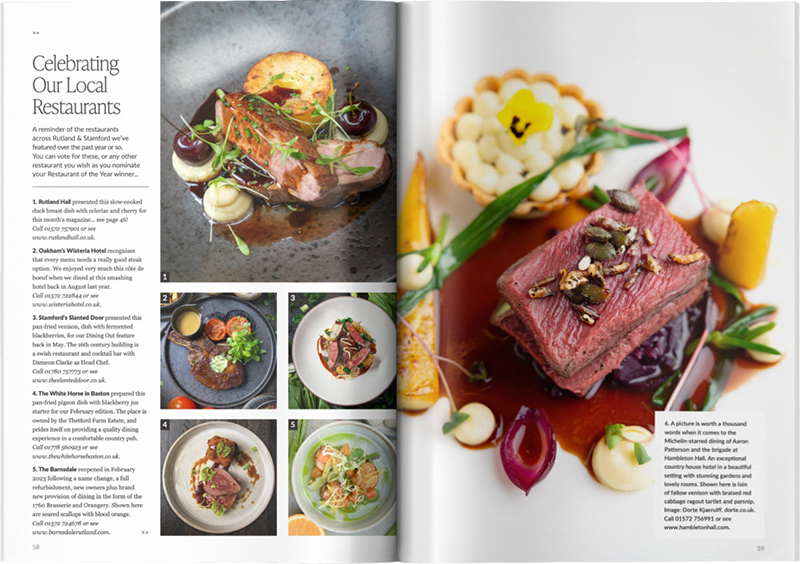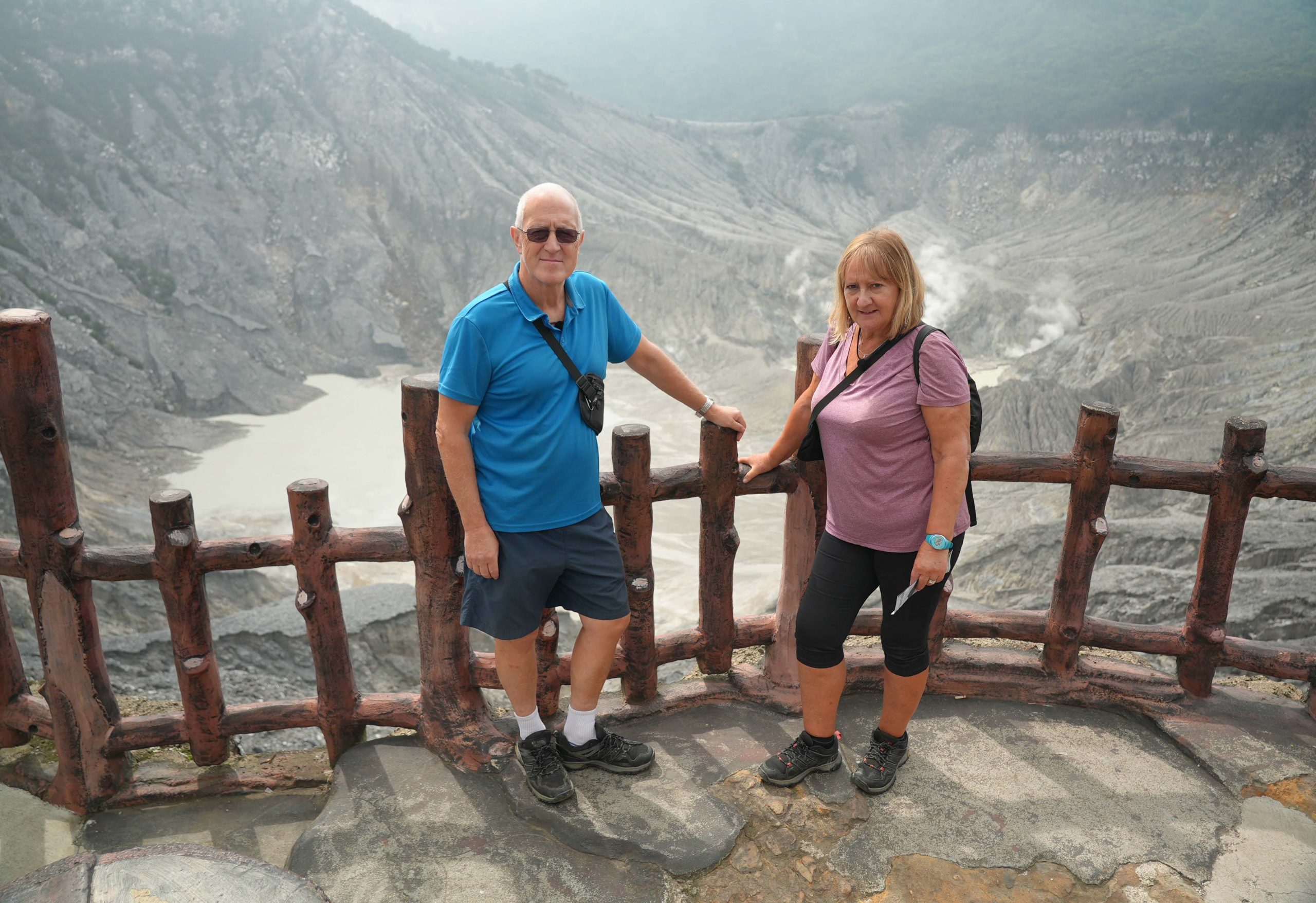
Stephen & Viv’s Race Across the World
Uppingham couple Stephen & Viv have been reliving memories of their once-in-a-lifetime trip across the world as participants in the recent BBC 1 series of the same name. The programme reached its conclusion as Pride went to press, so we’ve been sworn to secrecy as to the winners, but you can join the couple on their epic 15,000km journey on the BBC’s iPlayer to find out why, sometimes, it’s better to travel than to arrive
“Shall we?” two little words spoken in May 2023 which would prove to have really significant consequences. Uppingham couple Stephen and Viv returned to Britain in autumn last year after going on a trip… but this was no ordinary holiday.
As avid viewers of the first three series of BBC 1’s Race Across the World, the couple found themselves completing an application to appear on series four of the programme, which sees five pairs of competitors putting the old adage that ‘it’s better to travel than to arrive’ to the ultimate test.
Stephen is from Liverpool and Viv is from London. The couple met in 2005 whilst working at Uppingham Community College and between them, they’ve seven children. After Stephen experienced a heart attack and Viv a stroke in 2011, the two created a ‘bucket list’ and reckon they’ve ticked off most of the experiences they shortlisted.
Neither, though, reckoned on venturing on an epic trip covering 15,000km (9,300 miles), over 50 days, competing against four other couples, to complete each leg of their journey first.
“We’d been on holidays, but we hadn’t ‘travelled,’” says Stephen. “The most adventurous journey we’d been on was to China to see our daughter who lived out there in Wuhan province, but these were organised and well-planned, conventional trips. Apart from a road trip around Europe – again, well-planned – that was our experience of travel; remaining on the beaten track.” Stephen is fluent in German and French, teaching those languages at UCC, adds Viv.
“So there was a degree of security in being able to communicate and plan our trips properly… but our recent experience was something quite different.”
“We both loved the previous three series of the programme, with their spectacular scenery and that sense of adventure, as well as the competitive dimension. A message came up on the screen at the end of one of the closing episodes and invited entries for the next series and after the ‘shall we?’ conversation, we applied, and soon found ourselves submitting a video clip and speaking over Zoom to the producers.”
The series was filmed from September 2023, taking eight weeks to make. Race Across the World, for the uninitiated, sees teams embarking upon a journey with a deliberately tight budget of just £1,390 per person (the equivalent air fare of travelling the race route). The overall route is divided up into eight legs, each designed to be around four or five days in duration with mandated rest periods of a day or two in between… the first couple to reach the finish line will win a prize of £20,000.
The locations vary from series to series, and remain a secret right up until the moment the teams meet one another and set off. In Stephen and Viv’s case, they travelled to Sapporo on the island of Hokkaido in Japan, arriving at the Gokuru shrine and handing over their credit cards and mobile phones, collecting their budgeted cash and then making their way to Odori park where they met their fellow contestants.
“We became very close to the other teams and we wouldn’t hear a bad word said against any of them,” says Stephen. “It was competitive, but also a shared experience so there was a great sense of camaraderie between us. You see people at their best but also at their most exhausted. We’ve a WhatsApp group and still keep in touch. There’s also a reunion planned not just for our series, but for all of the participants across all four series, so that’s something we’re really looking forward to!”
At 2pm a claxon sounded and the teams each separated, having received their first checkpoint destination, Nara, capital city of the prefecture of the same name. Soon each team was finding how to overcome language barriers, how to live on a modest budget, and why keeping hold of a map is important. Really important.
“We play a lot of sports together, we’re competitive and we never argue,” says Viv. “We thought ‘yea, we can do this,’ but the challenges and the pressure were always present. As well as a sense of competition and time pressures, there’s so much going on, all the time. You’re on a constant state of heightened alert; you’re tired, looking for any clues and any information that can help you. But you’re emotionally exhausted, too.”
“A team accompanies you all the time and you’re equipped with microphones, with cameras constantly trained on you. They’re lovely people and we liked them, but they’re professionals – there to observe, not influence – so if you were about to make a huge mistake, they’ll let you, and film the consequences!”
“Sometimes you end up reeling from overload, exhausted, with a lack of sleep and food taking its toll – we both returned having lost weight – but it’s an uplifting experience despite the adversity, and we felt privileged to be a part of the whole experience. The producers and crew were all supportive and positive. And when you reach the mandated checkpoint breaks, the chance to reflect and to see the other participants is really welcome.”
“The conditions have to be challenging – that’s what makes it a competition, after all – but in the toughest conditions, you also see the best of each other, you work together and pull together, and you also appreciate gestures of support and kindness.”
“There are so many experiences we’ve had on the journey, and we’ve found that generally people are so willing to help, even if you’re a stranger. In Japan, where we started, people are so polite and so humble, and in other countries we’ve found that even those who are poor, relatively speaking for someone who lives in the Western world, are willing to share what they have with you and to support you, which is really uplifting, it validates your faith in mankind.”
“Supplementing the budget we were working to, we were allowed to undertake paid-for work throughout the series, often working for bed and board. Doing so is much more personal than staying in a hotel and you find yourself really getting to know the whole family, finding out about their lives.”
“There are four people in particular we’re intending to keep in touch with, people we were really grateful to see, people who were prepared to help us along the way with acts of kindness, giving us lifts or paying for hotel accommodation for us. We also discovered jobs that we didn’t realise existed, duck herding for example (8,000 of the creatures!), harvesting wasabi and picking coffee beans.”
“The eventual programme is an authentic reflection of the whole experience too, not faked or engineered,” say the couple. “Before the journey began, we wondered if we’d be a little bit coached by the producers, but absolutely not. You’re given a world map, which folds out quite large, so the area that you’re looking at is not at all detailed, it covers less than an A4-sized sheet of paper for the whole 15,000km journey. Japan was just a couple of inches in size on the map and we had to make our way from Hokkaido to Nara using just that, then on to the Hakata ferry port in the Fukouka prefecture.”
“You really do just get an envelope and then you sit down for half an hour and try to figure out what you need to do. Often a bus station and train station will be on opposite sides of town too, and if your connection isn’t for another six hours, say, you’ve just got wait it out. In some locations there was just a man or a woman at the side of the road sitting at a fold-out table, and your fate is in the hands of someone who phones someone they know, who phones someone they know, and they may or may not pop over shortly, which is frustrating given that it’s, ultimately, a race!”
A couple of the most memorable moments of the series include Viv opening up about her stroke whilst embarking on a visit to see pink dolphins in Thailand, and fellow participant, 20-year old Alfie, lighting a lantern for his late mother in Vietnam.
As uplifting as the experience was for the participants, it’s also an uplifting series for the viewer. The camera operators following the teams around captured a whole series of bright, colourful and beautiful images with spectacular scenery, dramatic aerial shots and time-lapse photography, recording the teams’ journey from crowded urban environments into some off-the-beaten-track rural places.
Modern camera kit and the expertise of the crew reinvent the traditional travelogue genre in absolutely gorgeous, high-definition, visually stunning form.
Someone medically-trained was on each team and GPS trackers were given to the participants as they set off, ensuring the producers could ensure their safety but also send messages giving clues as to exactly where the next checkpoint was located as each one was approached.
Along the way the couple had their backpacks, and from an initial weight of 20kg, the couple both managed to slim their packs down to 11kg. Some of the competitors were much younger and the couple reasoned that in lieu of being able to jog around cities for hours, being canny when planning their route and travelling light was prudent.
Unaware of where in the world they’d be heading to, they’d packed for all eventualities, with thermal underwear quickly ditched in favour of insect repellent and sunscreen among other essentials like head torches, padlocks and shampoo bars.
The couple even went as far as cutting out the labels from their clothes, shedding every bit of excess weight. There was little protection, though, from the 3pm monsoons which would frequently drench the participants in six inches of rain, leaving them with soggy rucksacks.
At the checkpoints, the participants all checked into hotels, and could have all of their clothes laundered, ready for the following day, but they were still isolated from their families and friends for the duration of the process.
“That was the hardest thing for us, really,” the adventurers say. “We’re sociable people, we love to talk, but we were under a strict embargo not to talk about our appearance on the series before the official announcement of the participants was made public.”
“We made the excuse that we were seeing our daughter in China. We’re members of Oakham Tennis Club and on our return our friends were all interested in where we’d been. We had to lie which felt awful, and we found ourselves staying away from people so we didn’t have to answer any questions.”
“Our children were allowed to know we were participating in the programme but they didn’t know where we were, and of course we didn’t know where we were going next, either!”
“Thailand was our very favourite place thanks to the coastal scenery and the wonderful people. We’d go back there, but actually as much as the experience has left us keen to return to those places, it’s made us more aware that there are places we haven’t been, off the beaten track with those once in a lifetime opportunities.”
“We’ve arranged to travel through Canada in an RV for a month, as we’ve never been there. But nor have we been to Australia, New Zealand and any one of thousands of other places. We have a lovely life together and we’re used to spending time together, so we’re looking forward to travelling much more, off the beaten track, to see as much of the world as we can!”
The whole of series four of Race Across the World featuring Stephen and Viv is now available to watch in BBC iPlayer (www.bbc.co.uk). As Pride goes to press the winning team is still a closely-guarded secret, but we’re looking forward to finding out how far the couple get through the process! The series is produced by Studio Lambert.
